Mina Intan
3rd year student
Facutly of Communication Arts
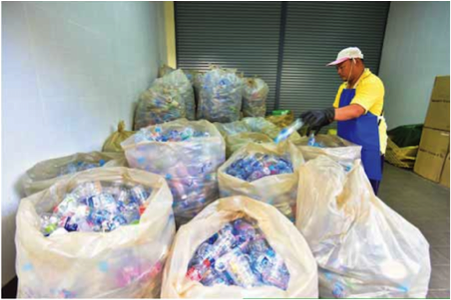
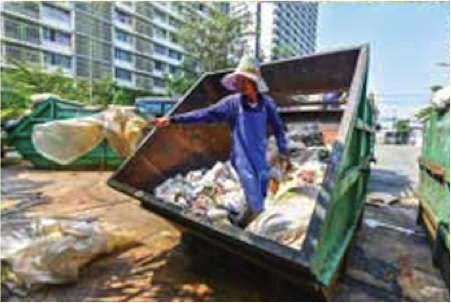
BANGKOK – It is possible for an institution to recycle 100% of its waste. Chulalongkorn University, affectionately shortened to “Chula,” is proudly ranked as Thailand’s most sustainable and environmentally friendly university. An integral aspect of Chula’s green effort is their comprehensive recycling program.
Chulalongkorn’s campus is sprawled across one of the busiest areas in Bangkok. It maintains over 350 buildings and accommodates over 20,000 students every year. As a result, a substantial amount of waste is periodically dumped into the university’s Central Waste Management Recycling Centre.
However, according to Professor Smith Boonchutima, the public relations director of Chulalongkorn’s Chula Zero Waste program, every single piece of trash within the University’s gates has been and can be systematically separated and recycled.
The process can be simplified into the management of four types of waste: recyclable trash, burnable trash, hazardous waste and food waste. The first stage is by far, the most collective and inclusive. Whenever an individual places their trash into the appropriate recycling bins, they have already facilitated the recycling process. For more information about Chulalongkorn’s recycling bins, please refer to Yuanyuan Zeng’s article “Yellow or Green?”.
Professor Smith used the terms recyclable trash (trash from green recycling bins) and “valuable trash” interchangeably, elaborating that high-quality plastic, scrap paper, glass, and cardboard can be sold to recycling factories for a small sum of money. Thus, during this first stage of Chula’s recycling process, the Central Waste Management Recycling Centre is open to collect and sell “valuable trash” for their profit.
As recycling factories have no interest in buying flimsy plastic or cardboard papers covered with wax or plastic (such as coffee cups), hazardous wastes or food waste, an additional three stages have been established.
Undesirable plastic and paper waste are sold to cement factories to be burned for energy. Highly developed technology ensures that these incinerations aren’t done at the cost of pollution. Hazardous wastes such as batteries and fluorescent light bulbs are managed and disposed of within university labs. Finally, what typically remains is the food waste, which is converted into biogas and fertilizer to nurture Chulalongkorn’s gardens and parks. According to Chulalongkorn’s Sustainability Report, the Recycling Centre can decompose over 3600 m3 of natural waste per year.
With the help of many partners and a well-maintained process, Chula can accomplish a commendable feat: recycling 100% of the waste that they produce.
However, the university’s efforts don’t stop there. Chulalongkorn’s latest campaign, Chula Zero Waste, has a much more ambitious goal in mind: reducing the amount of waste that Chulalongkorn creates, to zero.
“We at Chula have to educate people about how to behave correctly,” says Professor Smith on how the university is an instrumental player in creating a sustainable society.
By eradicating the amount of waste produced in the first place, within five years, the campaign hopes to reduce the need for recycling to a minimum.
Initiatives from Chula Zero Waste include promoting free water tanks across the campus to encourage the use of personal water bottles. Biodegradable containers have taken the place of Styrofoam packaging to facilitate recycling efforts. Finally, for one month, the campaign prohibited the distribution of free plastic bags at stores such as 7-11 and Chulalongkorn’s Coops to encourage customers to use their bags. Sustainable alternatives such as reusable bags that cost 10B and one-time-use biodegradable bags which cost 2 Baht have been provided as well. That month, only 2000 bags were sold, which was 96% less than the amount of plastic bags distributed in previous months.

“Why don’t we reduce waste in the first place, when we can and while we can,” concludes Professor Smith. “The Chula Zero Waste campaign is working to change our force of habit, into an active force of humanity.”
More information regarding the Chula Zero Waste can be found on their Facebook page “CHULA Zero Waste.”
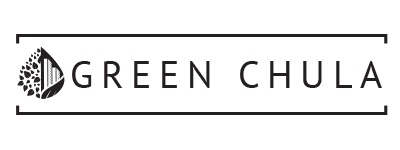

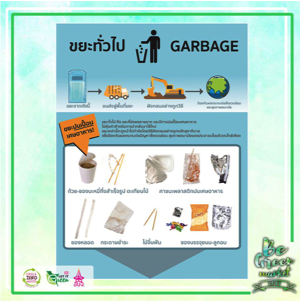

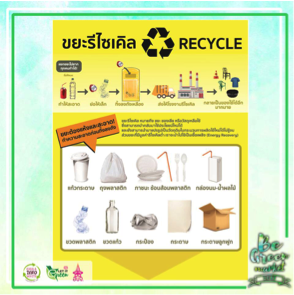
Recent Comments